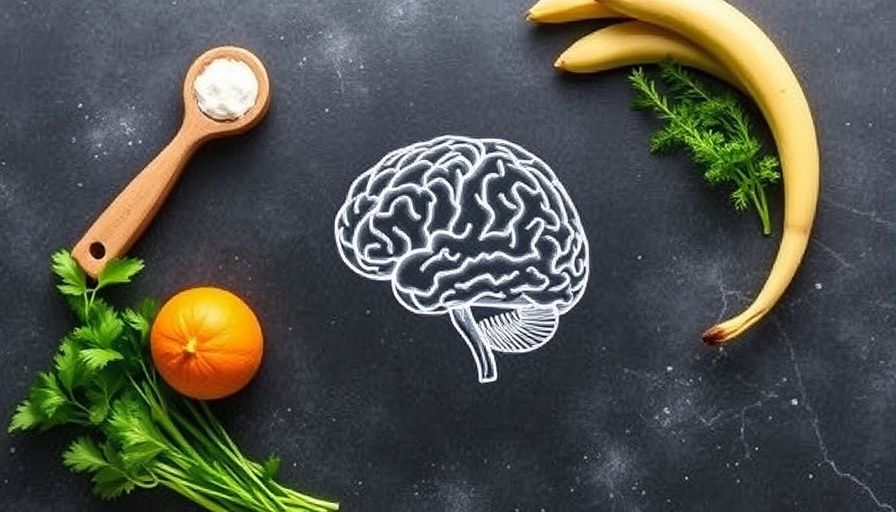
Diet as a Contributor to Brain Fog
Brain fog, characterized by symptoms such as memory lapses and difficulty concentrating, is becoming increasingly recognized as a condition influenced by diet. While several factors like stress and sleep play a role, recent studies suggest that poor nutrition could exacerbate or even cause brain fog in various individuals.
The Role of Nutrition in Cognitive Function
Particularly concerning is the link between ultra-processed foods and cognitive performance. Research published in the journal Nutrients indicates that individuals with high consumption of these foods found themselves frequently struggling with memory and focus. Glaring deficiencies in essential nutrients, such as vitamin B12, vitamin D, iron, and omega-3 fatty acids, have been correlated with diminished mental clarity. When these nutrients are lacking, not only does physical health suffer, but mental functions may also wane.
Blood Sugar Levels: More Than Just a Glucose Concern
An often-overlooked factor is how blood sugar spikes and crashes can cloud mental clarity. Eating foods high in sugar leads to rapid energy fluctuation, which contributes heavily to feelings of sluggishness or fogginess. Maintaining a steady blood sugar level through balanced meals can significantly bolster mental sharpness, making dietary choices increasingly vital for cognitive health.
Recognizing Symptoms and Making Dietary Changes
Recognizing the symptoms of brain fog is the first step toward seeking improvement. Common signs include difficulty concentrating, slower information processing, and mental fatigue, especially after meals. Making conscious dietary choices—like incorporating whole foods rich in essential nutrients—can help alleviate this frustrating condition. If symptoms persist, it may be beneficial to consult with a healthcare provider for further evaluation.
A Path Toward Clarity
Ultimately, a well-balanced diet rich in whole foods isn't just good for physical health; it profoundly impacts mental clarity as well. Staying informed about how diet affects cognitive function empowers individuals to take proactive steps toward mental well-being. By focusing on nutrition, clarity, and preventing brain fog, we can help our minds feel sharper and more engaged.
 Add Row
Add Row  Add
Add 




Write A Comment